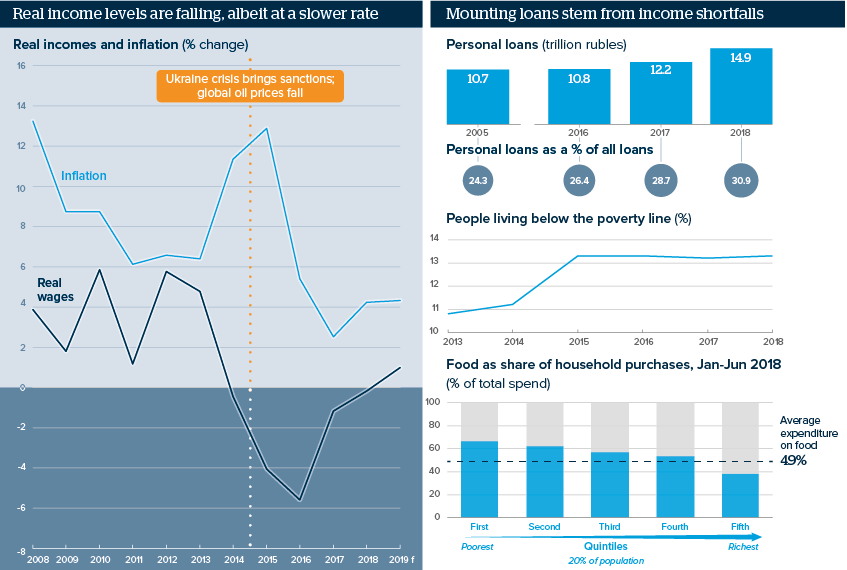Russia's low real incomes present insoluble challenge
Incomes have fallen in real terms for the fifth year in a row
Source: Rosstat; Russian economic development ministry; Russian Government Analytical Centre, Central Bank of Russia, RBC; Vedomosti; OA calculations
Outlook
Average real incomes fell by 0.2% last year despite the economy's return to growth. The economy ministry says the pain was mostly felt by people in the middle and upper income brackets earning less from savings and paying more property tax, while rises in family benefits, public-sector salaries and the minimum wage cushioned the less well-off.
Although real incomes are falling, consumption is creeping up, fuelled by a boom in borrowing, largely mortgages and unsecured loans. President Vladimir Putin has pledged to halve the number of people living in poverty by 2024 but it is hard to see that happening if incomes bump along at growth rates just above zero.
Impacts
- Falling real incomes may emerge as the main mobilising force for opposition to the Kremlin.
- Although officials say wealthier people have seen the largest drop in real incomes, the top 10% still receives 30% of all personal income.
- Russians spend a far higher proportion of income than Western Europeans on food.
- The central bank and parliament are planning measures to limit the amount of debt people are allowed to take on.
- Relatively low borrowing rates may have contributed to 2018's consumer loan boom; rising rates in 2019 may slow the trend.
See also
- Prospects for the Russian economy in 2020 - Nov 15, 2019
- Prospects for Russian domestic politics in 2020 - Nov 8, 2019
- Russian state banks will crowd out private sector - Apr 11, 2019
- Belarus economy in growth mode despite trade hitches - Apr 4, 2019
- Putin sets impossible targets for Russian growth - May 25, 2018
- More graphic analysis
